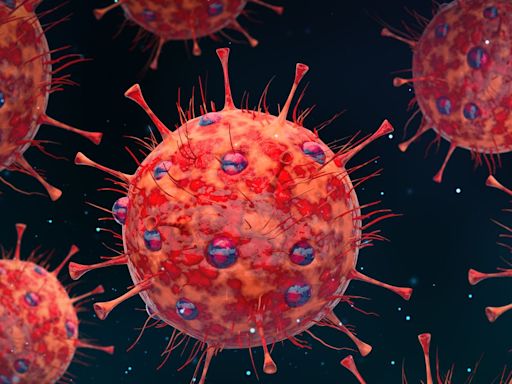Search results
- Prevention via Yahoo
Doctors Warn About 3 New COVID Variants—What to Know About ‘FLiRT’ Strains
New COVID-19 variants known as “FLiRT,” KP.2, KP.3, and KP.1.1, are spreading fast. Doctors explain symptoms, prevention, and how the vaccines stack up.
19 hours ago
- Los Angeles Times
COVID is rising in California. Here's how to protect yourself from FLiRT subvariants
There are growing signs of an uptick in COVID-19 in California thanks to the new FLiRT subvariants. It’s far too early to know if FLiRT will be a major change in the COVID picture, and so far ...
2 days ago
Mar 7, 2024 · Key Takeaways. According to the CDC, mild to moderate cases of COVID-19 remain infectious no longer than 10 days after symptom onset. If you test negative on a rapid antigen test, make sure to get tested again a few days later to ensure you don’t get a false negative.
- Why People With Covid Booster Shots Test Positive for Longer
A preprint study found that people who received a booster...
- How Long Does Covid-19 Stay In Your Body
How long COVID-19 stays in the body varies from person to...
- Unconscionable
The CDC shortened its isolation guidance for people with...
- Why People With Covid Booster Shots Test Positive for Longer
May 3, 2024 · If you become infected with COVID-19, the Centers for Disease Control and Prevention (CDC) recommends that you isolate at home until you've been fever-free for 24 hours (without the held of medications). It's also recommended that you take additional precautions for five days following isolation.
Mar 15, 2024 · New guidance from the CDC advises people to isolate until they have been fever-free and with symptoms improving for at least 24 hours, and then take precautions for five days, which covers...
Jan 7, 2024 · How Long Are You Contagious With COVID-19? According to the CDC, if you have mild to moderate COVID-19, you may be contagious for 10 days from the first day you notice symptoms.
- How Long Are You Contagious?
- Are Certain Variants More Contagious?
- When Can You Stop Isolating?
- How Should You Protect Others?
- Does Vaccination Reduce Contagion?
- A Quick Review
People with COVID-19 generally stop being contagious about 10 days after symptom onset and at least three fever-free days, Amesh Adalja, MD, a senior scholar at the Johns Hopkins University Center for Health Security, told Health. Some evidence suggests that SARS-CoV-2, the virus that causes COVID-19, is likely not present in your upper airways nin...
The SARS-CoV-2 virus has evolved and mutated to produce several variantssince the start of the COVID-19 pandemic. Variants, as well as subvariants, typically evolve to become stronger and more infectious than previous strains. New variants may resist treatments and vaccines, allowing them to spread easily. The SARS-CoV-2 virus has spike proteins on...
How long you need to isolate depends on your symptoms and how long they last. The CDC advises that you isolate at home for five days as soon as you test positive for COVID-19, regardless of your vaccination status. Wear a high-quality mask if you must be around anyoneduring those first five days, even at home. You can end your isolationafter five d...
Taking preventative measures when you go out in public and mix with others after recovering from COVID-19 is essential. You can help reduce the spread of the virus by taking the necessary precautions. Here's how you can help protect yourself and others: 1. Avoid crowded places:Indoor spaces that are poorly ventilated transmit COVID-19 more easily t...
Research has found that vaccinated people may be less contagious than others. A review published in 2021 noted that vaccinated people had a lower viral load, or the amount of SARS-CoV-2 in their body, than unvaccinated people. Another study published in 2023 found that each vaccine and booster doselowered SARS-CoV-2 transmission by 11%. The researc...
You are likely not contagious nine days after COVID-19 symptom onset. Still, the CDC advises wearing a high-quality mask until day 11 to reduce the spread of the virus. Remember to stay socially distanced from people likely to get very sick from COVID-19 and wash your hands regularly. The CDC says you can end your isolation after five days if you d...
Mar 5, 2024 · If symptoms or fever return, you should start back at square one: staying home and away from others until you’ve been improving and fever-free for at least 24 hours. What should you do if you’re at higher risk of severe illness?
Apr 1, 2022 · Most people with COVID-19 are no longer contagious 5 days after they first have symptoms and have been fever-free for at least three days. If you’re exposed to COVID-19 your first impulse may be to get tested immediately.


